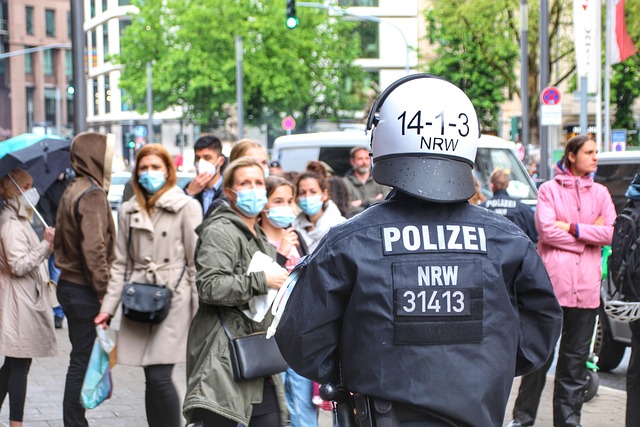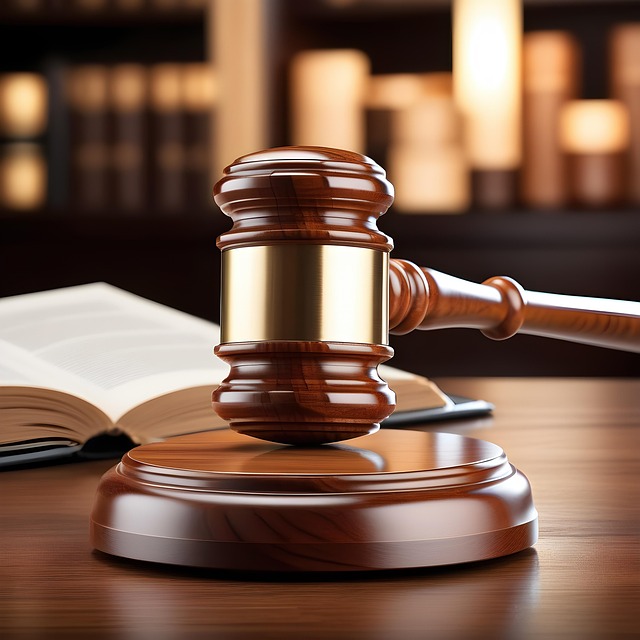Environmental Crime Trials, focused on justice and punishment, differ starkly from administrative and civil proceedings. While administrative actions by regulatory agencies aim to deter non-compliance through fines and permit restrictions, Environmental Crime Trials carry a higher burden of proof, offering substantial financial penalties and imprisonment for guilty parties. Civil lawsuits, initiated by affected parties, seek restorative justice and compensation for environmental harm, with different success rates and proof standards than criminal cases. Distinguishing these proceedings—administrative vs. civil—is crucial for navigating complex environmental investigations and ensuring the protection of rights throughout legal processes.
“Environmental Crime Trials: Uncovering Accountability in a Complex World
As environmental concerns grow, so does the need for effective legal mechanisms. This article delves into the intriguing realm of Environmental Crime Trials, a unique legal domain addressing ecological offences. We explore the interplay between administrative and civil proceedings as tools for environmental justice. From understanding the nuances of these processes to examining real-world case studies, we uncover how these trials hold individuals and corporations accountable, shedding light on the crucial Differences Between Administrative and Civil Proceedings in the fight against environmental crimes.”
- Understanding Environmental Crime Trials: A Unique Legal Domain
- The Role of Administrative Proceedings in Environmental Justice
- Civil Lawsuits: Holding Individuals and Corporations Accountable
- Key Differences Between Administrative and Civil Actions
- Case Studies: Exploring Real-World Environmental Crime Trials
Understanding Environmental Crime Trials: A Unique Legal Domain

Environmental Crime Trials represent a unique legal domain, distinct from both administrative and civil proceedings. These trials delve into high-stakes cases where individuals or corporations are accused of violating environmental laws and regulations. Unlike administrative processes, which often involve government agencies enforcing rules, criminal trials focus on seeking justice and deterrence through punishment. The key difference lies in the burden of proof; criminal cases require the prosecution to establish guilt beyond a reasonable doubt, a higher standard than that required in civil lawsuits.
While administrative proceedings may result in fines or permits being revoked, jury trials in environmental crime cases can lead to significant financial penalties, imprisonment, or both. This makes them particularly impactful, as they not only hold perpetrators accountable but also serve as deterrents across the country, ensuring compliance with environmental protection measures. The complexity of these trials demands specialized legal expertise and a deep understanding of ecological science, reflecting their importance in safeguarding the environment for future generations.
The Role of Administrative Proceedings in Environmental Justice

In the pursuit of environmental justice, administrative proceedings play a pivotal role by offering a unique avenue for addressing ecological wrongdoings. These processes, distinct from civil lawsuits, empower regulatory agencies to enforce environmental laws and standards. Unlike traditional civil litigation, administrative hearings focus on the specific violation and its impact, allowing for more efficient and targeted responses. This streamlines approach has proven effective in achieving extraordinary results across the country, with an unprecedented track record of holding polluters accountable.
The differences between administrative and civil proceedings are crucial. Civil lawsuits often involve complex legal battles, lengthy trials, and broad damages, while administrative hearings maintain a more direct and specialized focus. This targeted nature enables regulatory bodies to issue tailored remedies, such as fines, permits with stringent conditions, or even facility closures. Such measures not only deter future violations but also promote the restoration of affected ecosystems, ensuring environmental justice for communities bearing the brunt of pollution and degradation.
Civil Lawsuits: Holding Individuals and Corporations Accountable

Civil lawsuits play a crucial role in holding individuals and corporations accountable for environmental crimes, offering an alternative to criminal proceedings. Unlike administrative actions that focus on regulatory compliance, civil lawsuits emphasize restorative justice and compensation for harmed parties. While administrative processes often involve government agencies and specific violations of environmental laws, civil cases allow private citizens and organizations to sue for damages, such as property devaluation or health issues caused by pollution.
One key difference between these two types of proceedings is the burden of proof. In civil lawsuits, plaintiffs must demonstrate that the defendant’s actions were negligent or intentional and directly caused their losses. This standard differs from criminal cases, where the prosecution must prove guilt beyond a reasonable doubt. The success of civil lawsuits against environmental offenders has an unprecedented track record across the country, showcasing their effectiveness in avoiding indictment and holding polluters accountable for their actions.
Key Differences Between Administrative and Civil Actions

When discussing Environmental Crime Trials, understanding the key differences between administrative and civil actions is crucial. Administrative proceedings are typically initiated by regulatory agencies to enforce environmental laws and regulations. These actions focus on deterrence, punishment, and ensuring compliance with environmental standards. The main goal for prosecutors in these cases is often a complete dismissal of all charges, rather than securing specific damages.
In contrast, civil actions are brought by individuals, groups, or organizations that have suffered harm as a result of environmental crimes. Unlike administrative proceedings, civil lawsuits aim to hold perpetrators liable for damages and seek compensation for the respective business affected. Winning challenging defense verdicts in these cases can lead to significant financial penalties and restorative measures, ensuring justice for those impacted by environmental misconduct.
Case Studies: Exploring Real-World Environmental Crime Trials

Environmental crime trials offer a unique glimpse into the legal battles surrounding ecological degradation and its perpetrators. When delving into case studies, one encounters a diverse range of scenarios that highlight the complexities of environmental law. These real-world examples provide valuable insights into how different legal systems address environmental offenses.
A notable distinction arises between administrative and civil proceedings. Administrative trials often focus on regulatory compliance and may result in fines or enforcement actions without criminal convictions. In contrast, civil lawsuits emphasize damage restoration and compensation for affected parties. For instance, a company accused of polluting a local river might face administrative penalties during an investigative process, while also being sued civilly by residents for property damage and health risks. Understanding these differences is crucial for navigating all stages of the investigative and enforcement process, ensuring that clients’ rights are protected whether they’re facing indictment or alternative forms of legal scrutiny.
Environmental crime trials represent a critical aspect of achieving environmental justice, offering distinct approaches through administrative and civil lawsuits. Understanding these unique legal domains is essential for holding individuals and corporations accountable for their actions—or inactions—that harm the environment. By examining real-world case studies, we uncover the nuances and differences between administrative and civil proceedings, highlighting effective strategies for navigating this complex landscape. This knowledge empowers stakeholders to advocate for more sustainable practices and ensure that environmental laws are enforced rigorously.






